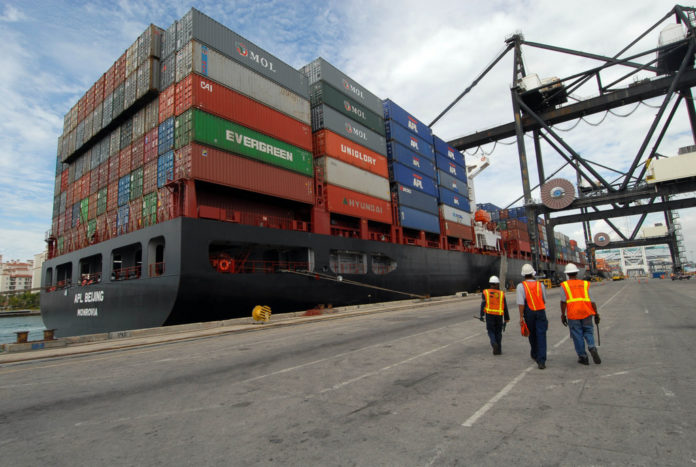
NEW YORK – Dockworkers and their employers reached a tentative agreement on royalty payments, averting a strike that would have shut down eastern U.S. ports for the first time in 35 years.
The International Longshoremen’s Association and the U.S. Maritime Alliance will continue negotiations for another 30 days, according to the Federal Mediation and Conciliation Service, which was working with the two groups. A strike would have closed ports from Maine to Texas that handle 45 percent of U.S. commerce.
The union and the maritime alliance, whose members include container-carrier companies, began negotiations in late March and reached tentative agreements in July on issues involving new technology and union jurisdiction over work on chassis used for cargo. Talks between the two sides had collapsed last week amid a dispute over so-called container royalty fees, or levies on shipments that supplement wages.
“The agreement on this important subject represents a major positive step toward achieving an overall collective bargaining agreement,” George Cohen, director of the mediation service, said in a statement. “While some significant issues remain in contention, I am cautiously optimistic that they can be resolved in the upcoming 30-day extension period.”
The dockworkers and their employers agreed to hold talks through Jan. 28, Cohen said. He declined to describe the payment agreement in more detail.
If a strike had occurred, workers wouldn’t have moved containerized cargo, including frozen foods and household goods, ILA President Harold J. Daggett told union members in a Dec. 19 letter. Passenger ships, military cargo, containerized mail, bulk items, finished autos and perishable items with a “limited shelf life” would still have been handled, he wrote.
More than half of the nation’s containerized shipments pass through East Coast and Gulf Coast ports, which means that a strike would affect imports and exports that accounted for $454 billion of U.S. foreign merchandise trade dollars in 2011, according to data compiled by Jock O’Connell, international trade adviser for Los Angeles-based Beacon Economics LLC.
The Port Authority of New York and New Jersey said a strike would cost the region an estimated $136 million a week in personal income and $110 million in economic output.











